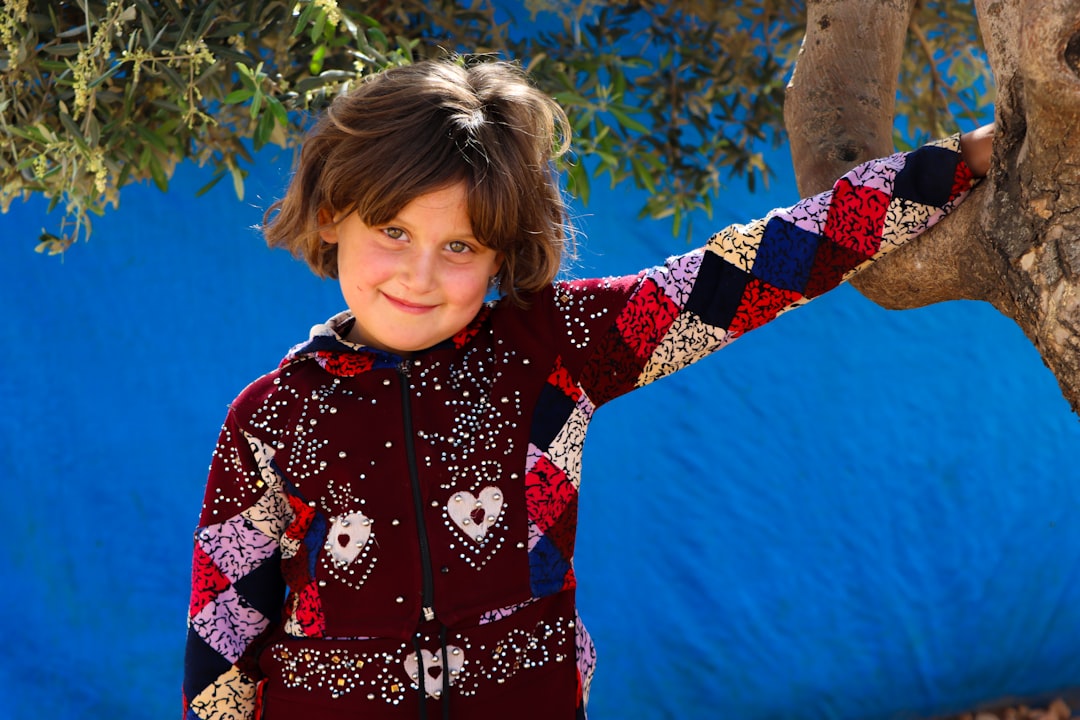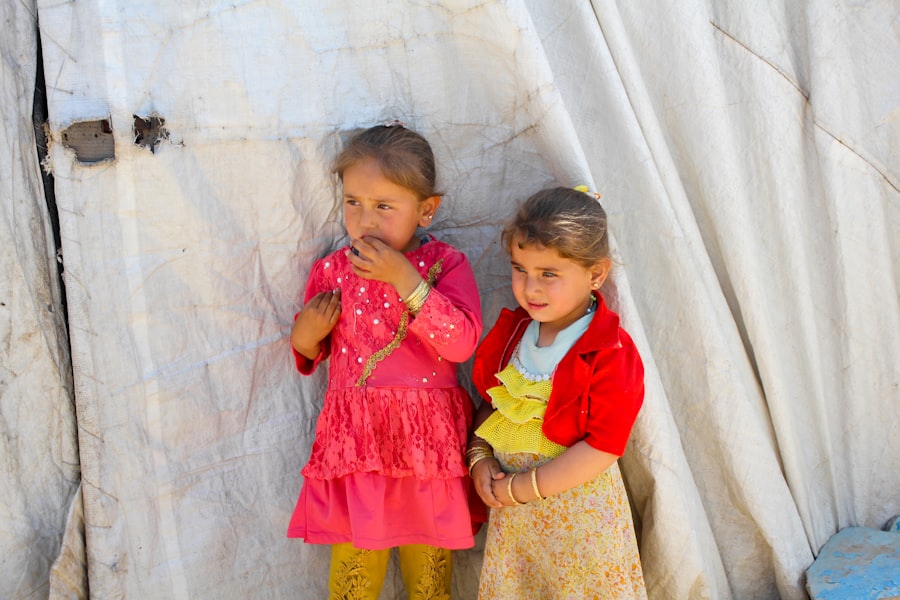
The refugee crisis is a complex and multifaceted phenomenon that has garnered global attention in recent years. At its core, it involves individuals who are forced to flee their home countries due to persecution, conflict, violence, or human rights violations. According to the United Nations High Commissioner for Refugees (UNHCR), there are over 26 million refugees worldwide, a staggering figure that underscores the urgency of addressing this humanitarian issue.
The reasons behind this mass displacement are varied and often interlinked, including civil wars, ethnic strife, and the impacts of climate change. As geopolitical tensions rise and conflicts escalate, the number of people seeking refuge continues to grow, leading to a pressing need for international cooperation and understanding. The refugee crisis is not merely a statistic; it represents the stories of individuals and families who have been uprooted from their lives.
Many refugees endure harrowing journeys, often risking their lives to escape dangerous situations. They face numerous obstacles along the way, including treacherous terrain, hostile environments, and the threat of exploitation. Once they reach safety, the challenges do not cease; instead, they often find themselves in overcrowded camps or urban settings where resources are scarce.
Understanding the refugee crisis requires a compassionate lens that recognizes the human dignity of those affected and acknowledges the broader socio-political contexts that contribute to their plight. It is essential to foster empathy and awareness among global citizens to create a more informed dialogue about the realities faced by refugees.
Key Takeaways
- The refugee crisis is a global issue driven by conflict, persecution, and environmental disasters, leading to millions of people fleeing their homes.
- Refugees face numerous challenges, including language barriers, limited access to education and healthcare, and discrimination in host countries.
- Host countries experience both positive and negative impacts from hosting refugees, including economic strain and cultural enrichment.
- The international community plays a crucial role in providing support and resources to both refugees and host countries through humanitarian aid and resettlement programs.
- Refugee integration can be achieved through policies that promote education, employment opportunities, and social inclusion, ultimately leading to a better future for refugees.
Challenges Faced by Refugees
Refugees encounter a myriad of challenges that can severely impact their physical and mental well-being. One of the most pressing issues is access to basic necessities such as food, clean water, and healthcare. In many host countries, refugees are often placed in overcrowded camps where resources are limited, leading to malnutrition and health complications.
The lack of adequate medical care can exacerbate existing health issues or lead to new ones, particularly among vulnerable populations such as children and the elderly. Furthermore, the psychological toll of displacement cannot be overstated; many refugees suffer from trauma due to their experiences of violence and loss, which can manifest in mental health disorders such as depression and anxiety. In addition to these immediate concerns, refugees also face significant barriers to social integration and economic stability.
Language differences can hinder their ability to communicate effectively with locals or access essential services, while cultural differences may lead to misunderstandings or discrimination. Employment opportunities are often scarce for refugees, as they may lack recognition of their qualifications or face legal restrictions on their ability to work. This economic marginalization can perpetuate cycles of poverty and dependency, making it difficult for refugees to rebuild their lives.
The challenges faced by refugees are not merely logistical; they are deeply intertwined with issues of identity, belonging, and resilience in the face of adversity.
Impact on Host Countries

The influx of refugees can have profound effects on host countries, both positive and negative. On one hand, refugees can contribute to the local economy by filling labor shortages and bringing diverse skills and perspectives. Many host nations have benefited from the entrepreneurial spirit of refugees who establish businesses and create jobs for themselves and others.
Additionally, cultural exchange can enrich communities, fostering greater understanding and tolerance among different populations. In this sense, refugees can be seen as assets rather than burdens, contributing to the social fabric and economic vitality of their new homes. Conversely, the sudden arrival of large numbers of refugees can strain public services and resources in host countries.
This is particularly evident in regions that are already grappling with economic challenges or limited infrastructure. Schools may become overcrowded, healthcare systems may be overwhelmed, and housing shortages can exacerbate tensions between local populations and newcomers. In some cases, this has led to xenophobia and social unrest as communities struggle to adapt to demographic changes.
It is crucial for host countries to strike a balance between providing support for refugees while also addressing the needs of their own citizens. Effective policies that promote integration and mutual benefit can help mitigate potential conflicts and foster a more harmonious coexistence.
International Response and Support
| Country | Donation Amount | Number of Medical Personnel Sent |
|---|---|---|
| United States | 100,000,000 | 500 |
| United Kingdom | 50,000,000 | 300 |
| Canada | 30,000,000 | 200 |
The international response to the refugee crisis has evolved over time, reflecting changing geopolitical dynamics and humanitarian priorities. Organizations such as the UNHCR play a pivotal role in coordinating efforts to provide assistance to refugees around the world. This includes not only immediate relief efforts—such as food distribution and shelter—but also long-term solutions aimed at fostering self-sufficiency among displaced populations.
The international community has also seen an increase in collaboration between governments, non-governmental organizations (NGOs), and civil society groups to address the multifaceted needs of refugees. Despite these efforts, challenges remain in ensuring that support reaches those who need it most. Funding shortfalls often hinder humanitarian operations, leaving many refugees without adequate assistance.
Additionally, political considerations can complicate international responses; some countries may be reluctant to accept refugees due to domestic pressures or concerns about security. Advocacy for more equitable burden-sharing among nations is essential to ensure that no single country bears an undue burden in addressing the refugee crisis. A comprehensive international approach that prioritizes human rights and dignity is vital for creating sustainable solutions that benefit both refugees and host communities alike.
Solutions for Refugee Integration
Integrating refugees into host societies is a critical component of addressing the refugee crisis effectively. Successful integration requires a multifaceted approach that encompasses economic, social, and cultural dimensions. One key aspect is providing access to education and vocational training programs that equip refugees with the skills needed to thrive in their new environments.
By investing in education, host countries can empower refugees to contribute meaningfully to society while also fostering social cohesion through shared learning experiences. Moreover, promoting community engagement initiatives can facilitate positive interactions between refugees and local populations. Programs that encourage cultural exchange—such as language classes or community events—can help break down barriers and combat stereotypes.
Additionally, creating pathways for legal employment can enhance economic stability for refugees while alleviating some of the pressures on local labor markets. Ultimately, successful integration hinges on recognizing the potential of refugees as active participants in society rather than passive recipients of aid.
Advocacy and Policy Changes

Advocacy plays a crucial role in shaping policies that affect refugees at both national and international levels. Grassroots organizations, activists, and concerned citizens have mobilized efforts to raise awareness about the plight of refugees and push for more humane policies. This includes advocating for legal protections that uphold the rights of refugees, ensuring access to asylum procedures, and challenging discriminatory practices that marginalize displaced individuals.
By amplifying the voices of refugees themselves, advocates can highlight their unique experiences and needs, fostering a more nuanced understanding of the complexities surrounding displacement. Policy changes are essential for creating an environment conducive to refugee protection and integration. Governments must prioritize comprehensive asylum systems that are fair and efficient while also addressing the root causes of displacement through diplomatic efforts and conflict resolution initiatives.
International cooperation is vital in this regard; countries must work together to share responsibilities and resources in addressing the refugee crisis. By fostering a culture of solidarity rather than fear, policymakers can create frameworks that not only protect refugees but also promote social cohesion within host communities.
Empowering Refugees for a Better Future
Empowering refugees is fundamental to breaking the cycle of dependency and fostering resilience among displaced populations. This empowerment can take many forms, from providing access to education and job training programs to facilitating community engagement initiatives that allow refugees to share their skills and talents with others. By investing in their potential, host countries can help refugees rebuild their lives while also benefiting from their contributions to society.
Empowerment also involves recognizing the agency of refugees themselves; they are not merely victims but individuals with aspirations, dreams, and capabilities. Furthermore, fostering networks of support among refugees can enhance their sense of belonging and community. Initiatives that connect refugees with mentors or local organizations can provide valuable resources and guidance as they navigate their new environments.
By creating spaces for dialogue and collaboration between refugees and host communities, we can cultivate an atmosphere of mutual respect and understanding. Ultimately, empowering refugees is not just about meeting immediate needs; it is about enabling them to envision a brighter future for themselves and their families—a future where they can thrive rather than merely survive in their new homes.
FAQs
What are refugee issues?
Refugee issues refer to the challenges and problems faced by individuals who have been forced to flee their home countries due to persecution, conflict, or violence.
What are the main causes of refugee issues?
The main causes of refugee issues include armed conflict, persecution, human rights violations, and environmental disasters. These factors force people to leave their homes and seek refuge in other countries.
How many refugees are there worldwide?
According to the United Nations High Commissioner for Refugees (UNHCR), there were approximately 26 million refugees worldwide at the end of 2020.
What are the challenges faced by refugees?
Refugees face numerous challenges, including lack of access to basic necessities such as food, shelter, and healthcare, as well as discrimination, language barriers, and legal obstacles in their host countries.
What is the role of the UNHCR in addressing refugee issues?
The UNHCR is the United Nations agency responsible for protecting and assisting refugees. It works to provide shelter, food, and healthcare to refugees, as well as advocating for their rights and seeking durable solutions to their displacement.
How can individuals and organizations help address refugee issues?
Individuals and organizations can help address refugee issues by providing financial support to humanitarian organizations, volunteering their time and skills, advocating for refugee rights, and promoting policies that support refugee integration and protection.






